
How to Talk to Your Kids about Sex
Back-to-school season is here so let’s talk about an essential part of our kids' learning: sex education. Knowing your body—its rhythms, boundaries, and even pleasures—doesn’t harm kids. It protects them.
While some states are rolling back sex education, many others are moving to protect and expand the rights of kids. Some 27 states require schools to supply free period products. But in Indiana, lawmakers recently removed consent from the state’s required sex education curriculum and in Iowa and North Carolina, discussions of gender identity and sexuality are disappearing from classrooms.
Silence doesn’t protect our kids. It makes them more vulnerable. Research shows that comprehensive sex education reduces teen pregnancy, lowers rates of STIs, and delays the age at which young people start having sex. It also gives them tools to recognize abuse, set boundaries, and have healthier relationships. When kids don’t get sex education, shame can grow in its place. And shame can open the door for abuse.
So how do we start the sex education conversation at home? Experts say rather than a one-time “big talk,” find ways to have a series of small, open, shame-free conversations that can evolve as our children do.
With little ones, it’s as simple as naming body parts correctly and teaching them that they have the right to say “no” to any unwanted touch. For school-aged kids, it means learning about their bodies' superpowers and the changes of puberty. It's essential to prepare girls for menarche, and teach boys—and all kids—not to tease or bully as their bodies change. For teens, it’s about self-care, consent, contraception, and pleasure—yes, pleasure. Kids who know that pleasure is their sacred birthright will be better equipped to protect themselves from harm.
Here are some ways to begin the conversation:
For Kids Ages 4–7:
Keep it simple, matter-of-fact, and body-positive.
Naming parts: “Just like your nose is for smelling, your penis/vulva is an important part of your body. Everyone’s body is different and special.”
Boundaries: "If you don’t want a hug, you can say no. And if someone says no to you, you stop right away. That’s respect.”
Pleasure is private: “It's natural to want to touch your own body but that’s something private that you only do in your room. No one else has the right to touch your private parts. If someone tries to, let mommy, daddy, or an adult know right away."
For Kids Ages 8–12:
Kids this age are hungry for answers. Give them real information so they don't just rely on their peers.
Puberty prep: “Some girls get their periods as early as 8 or 9. That doesn’t mean they're a ‘grown up,’ it just means their body is getting ready for adulthood.”
For boys: “It’s not just girls who need to learn about periods. Boys need to know too—so you can be kind, supportive, and responsable humans.
Pleasure: “Our bodies are wired to experience pleasure and that's wonderful—but sex has many consequences—not just pregnancy—and that's why it's for grown-ups.
For Teens Ages 13+:
This is where honesty and respect matter most. Teens want to feel like you trust them and you're not talking down to them.
Pleasure & Reciprocity: “Mastrubation is natural but sharing bodily pleasure with others should only happen if you feel safe, cared for, and respected.”
Consent: “If you feel pressured to do anything, that’s not OK— everyone gets to say no—without having to explain themselves.”
Contraception & safety: “If you are thinking about having sex, I want you to know how to protect yourself and your partner. Condoms and birth control are about safety and caring, not just preventing pregnancy or STIs.”
Power & pressure: “Sometimes people say they’re ready for sex when they’re not. What matters most is listening, respecting and trusting yourself—don't let friends, partners, or media pressure you to do anything that doesn't feel right to you."
Tone & Delivery Tips
Normalize, don’t dramatize. Help them feel comfortable talking about it by being comfortable yourself.
Keep the door open. End with: “I know this is a lot, but you can always ask me anything—no shame, no judgment.”
Listen as much as you talk. Ask: “What do your friends say about this? How does that make you feel?”
Sex-education at home begins around the kitchen table, in the car ride home, or in a bedtime conversation: “Your body is beautiful. It’s powerful. It’s wise. And it belongs to you.”
And because menarche can be overwhelming—we want to help make this transition easier for our young girls. That’s why this week, we’re launching our Venus Matters For Kids campaign.
Take 10% off Twin Zenith Venus Mats through Labor Day weekend (code TWIN10 is automatically applied).
Give your daughter the gift of feeling safe, supported and beautifully uplifted, especially during those first unpredictable cycles. Because while she's learning how to handle menstruation, she shouldn’t also have to worry about staining the sheets.
We stand at a crossroads: will the forces of control and censorship prevent more kids from getting age-appropriate sex-education, or will we start a revolution that teaches every child to honor, safeguard, and celebrate their bodies?
Let's choose revolution.


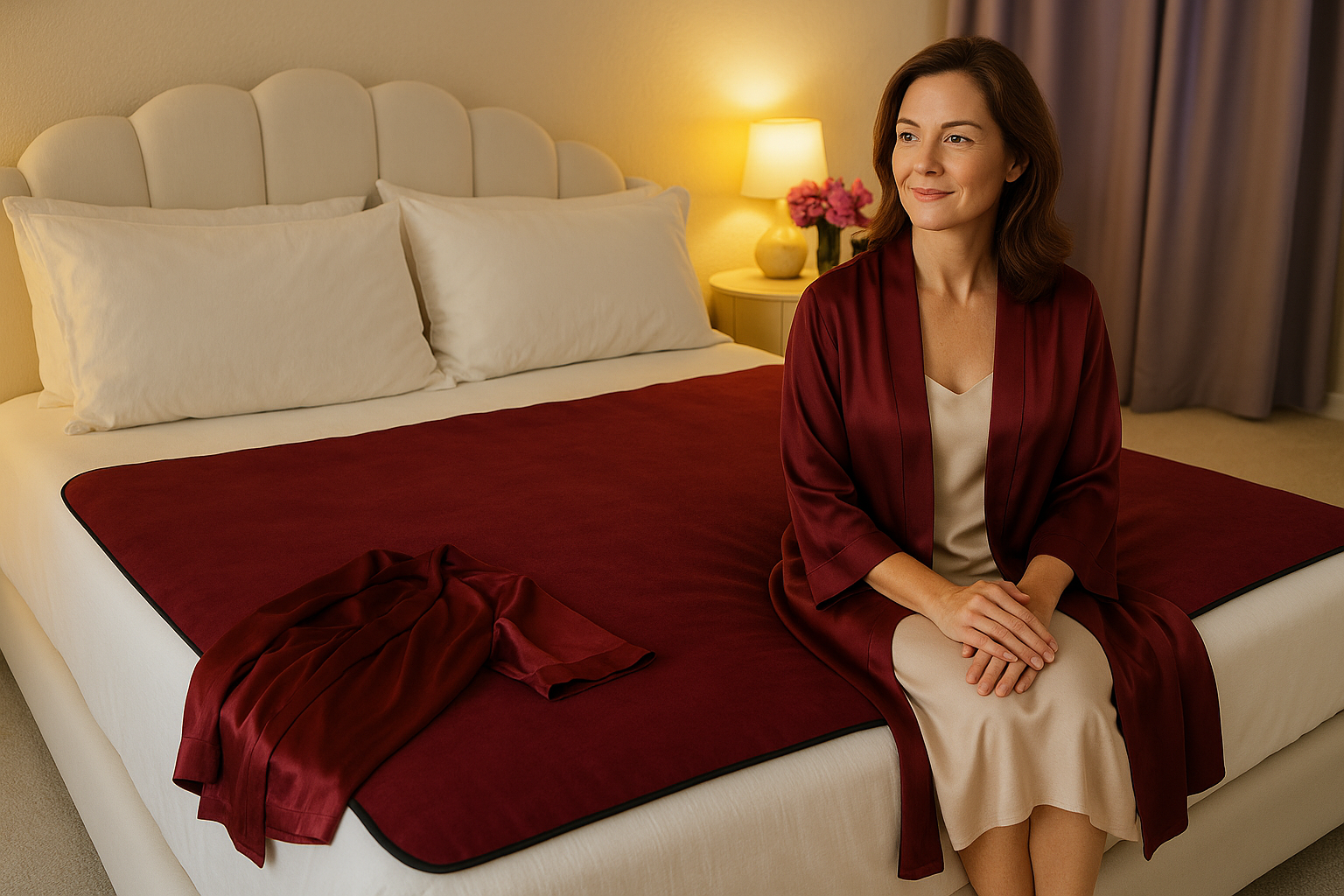
















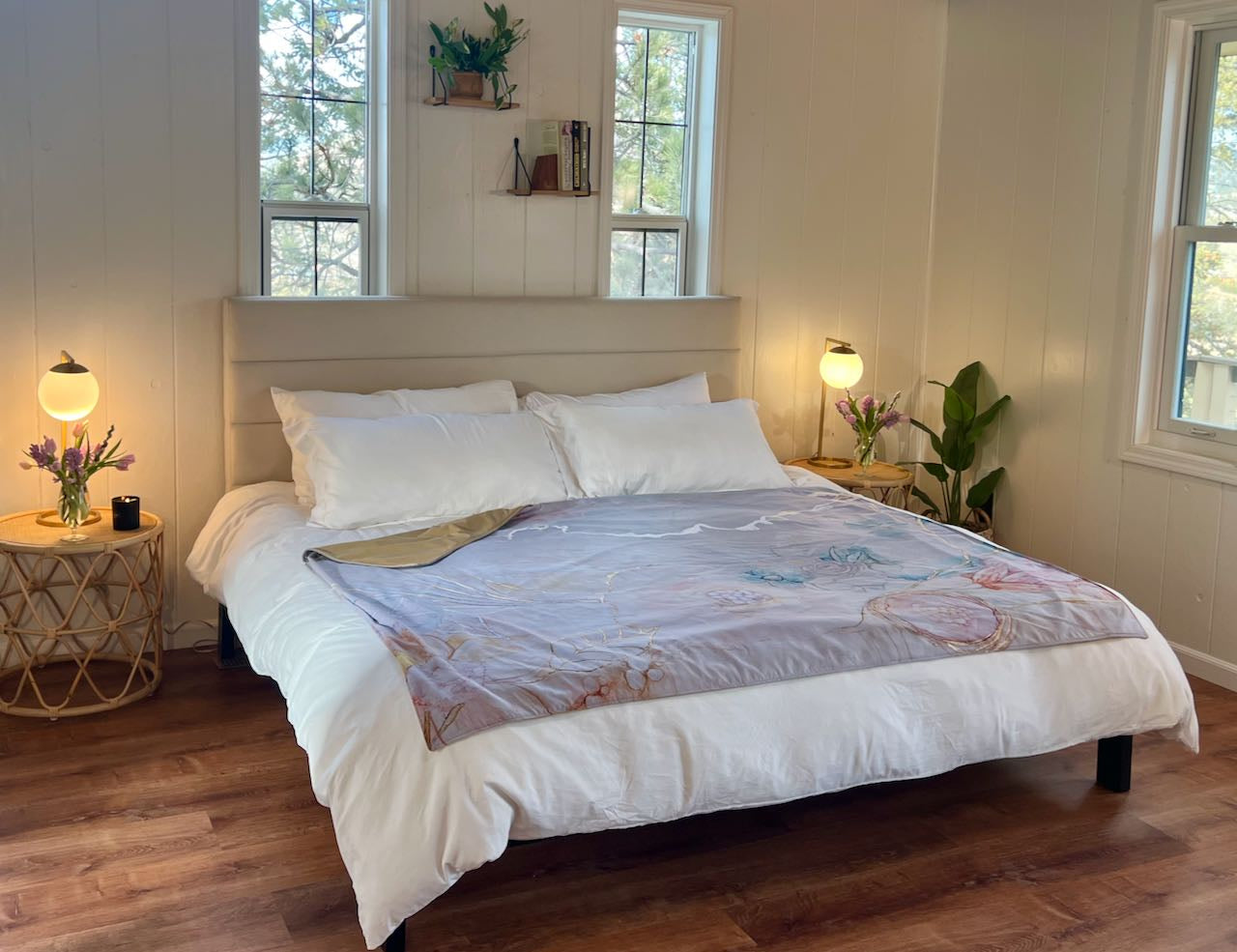
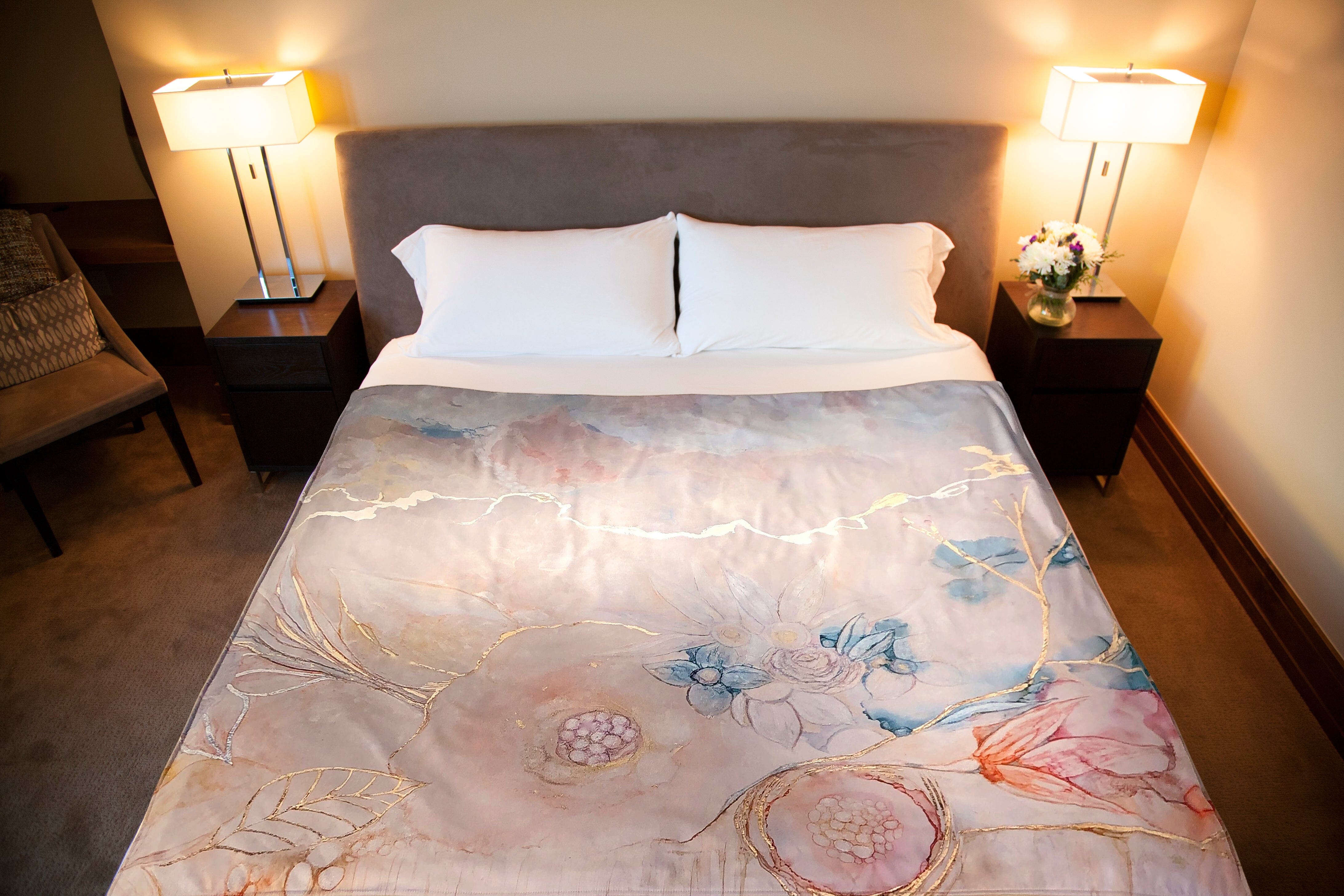




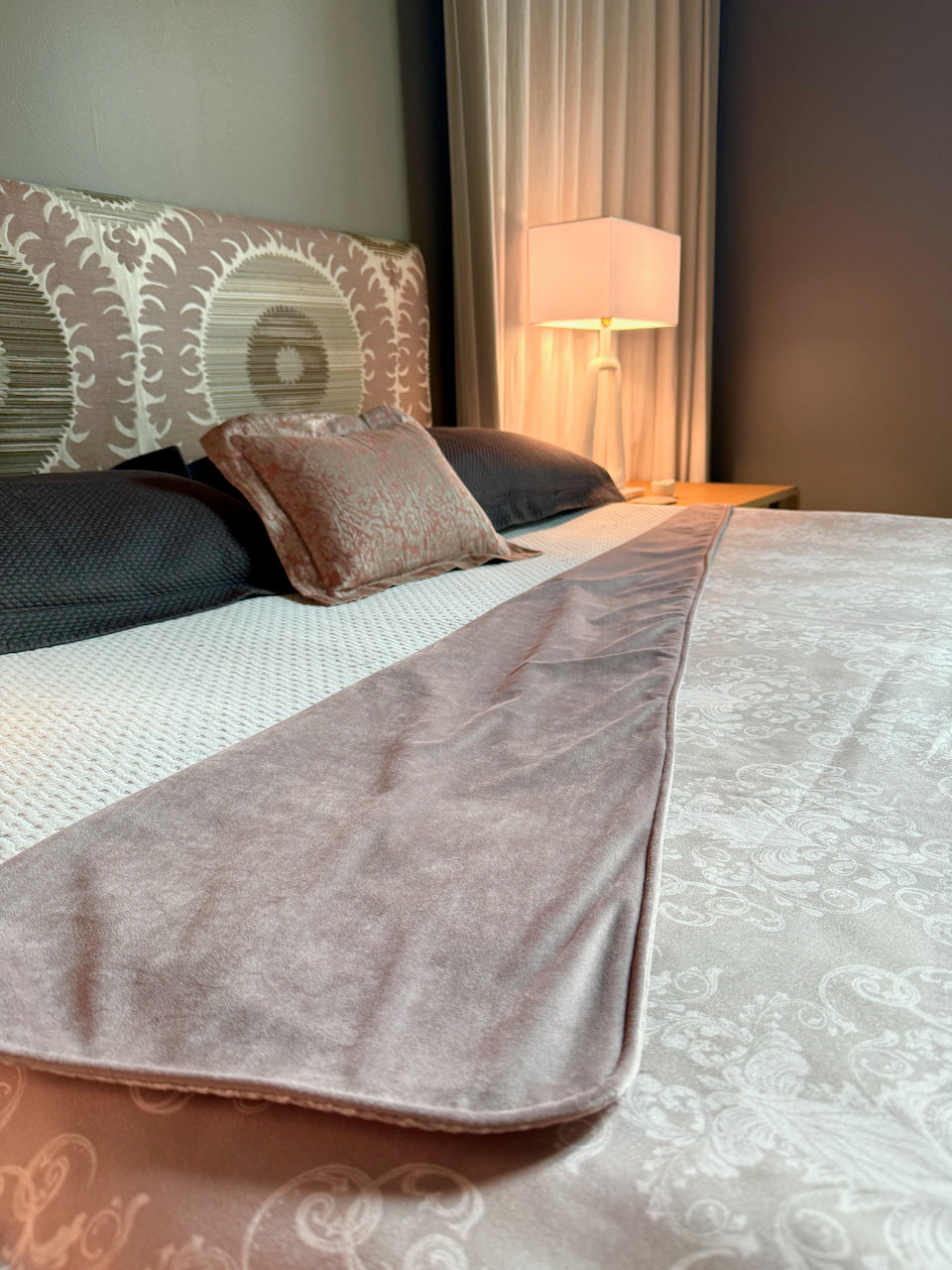
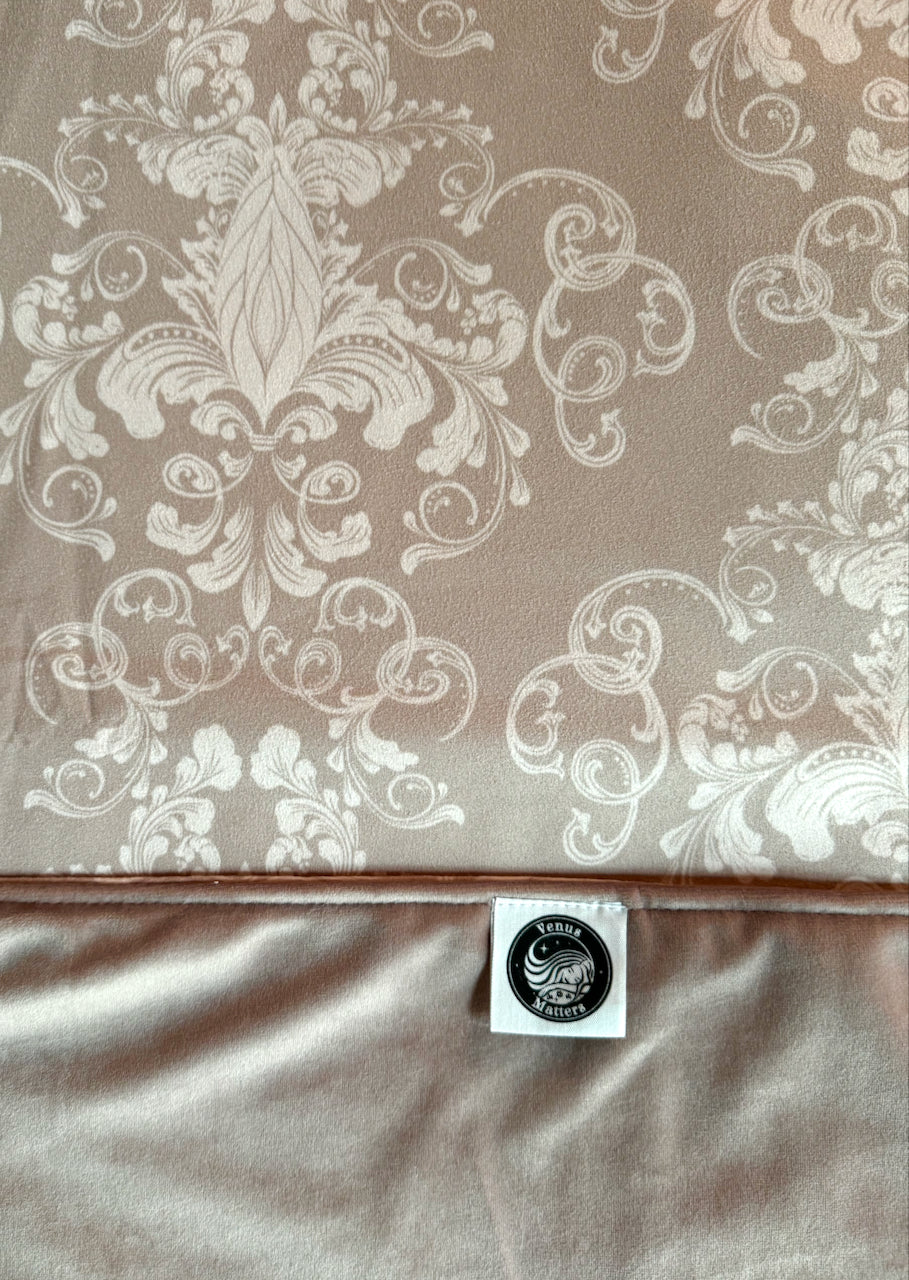























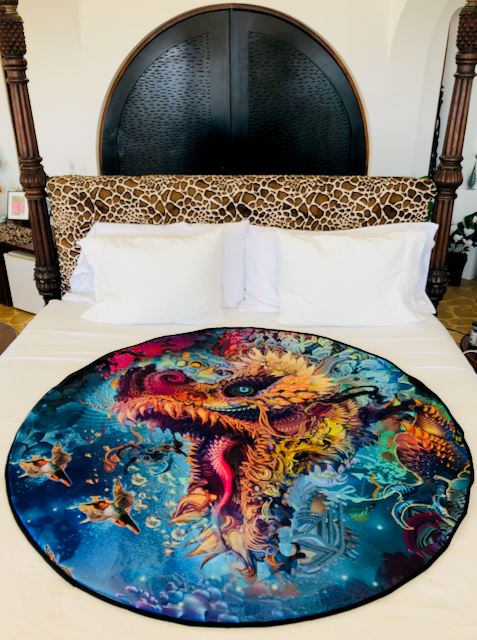











Leave a comment